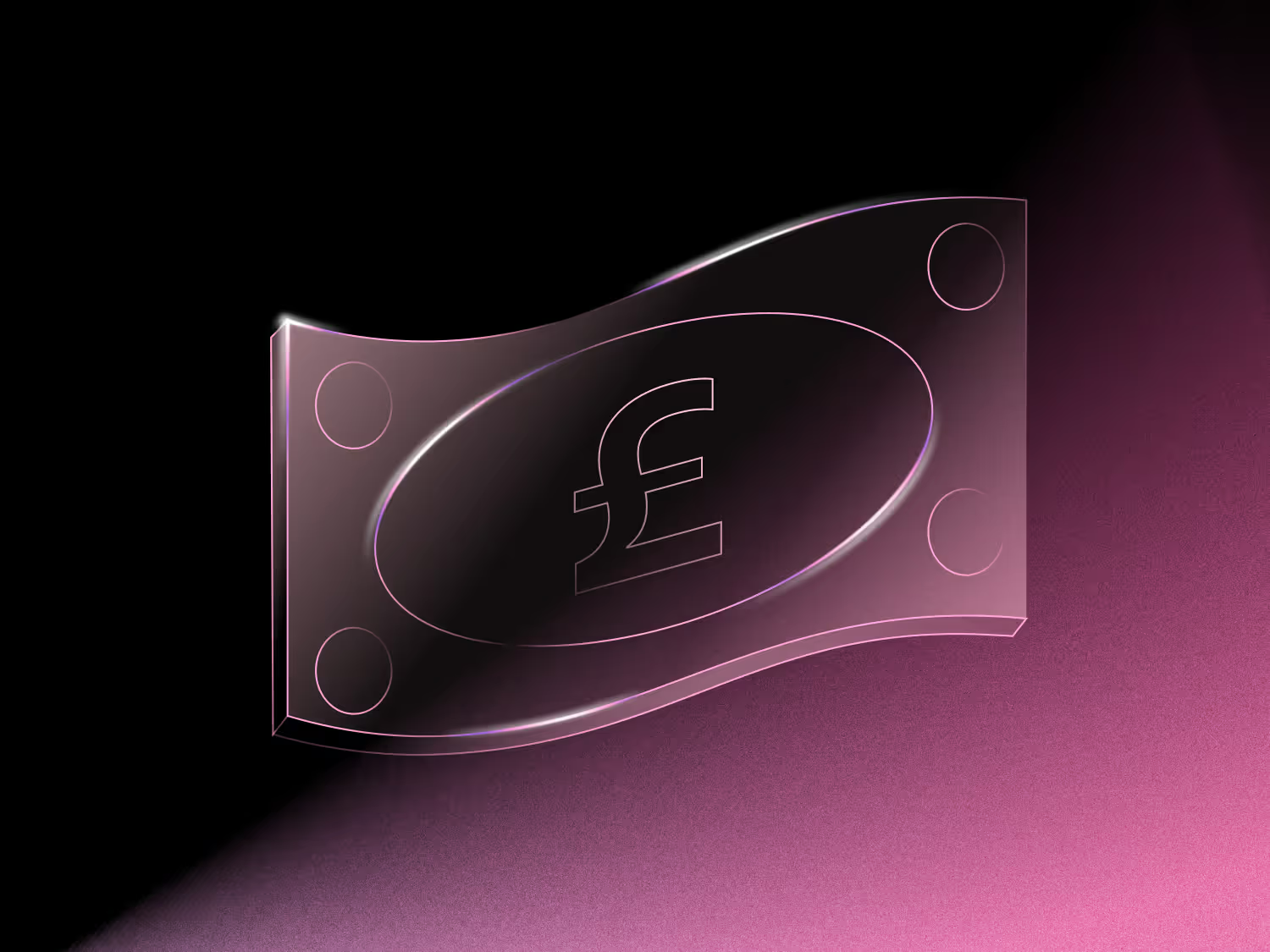UK retail investors have a new way to invest in the cryptocurrency market - through exchange-traded notes (ETNs). The Financial Conduct Authority (FCA) lifted its ban on these products on October 8th.
What makes this a big deal is that these investments CAN be held within retail investors’ Stocks and Shares ISAs and General Investment Accounts (GIAs). This gives you the opportunity to gain exposure to crypto without needing to open accounts with unregulated crypto exchanges. However, under current rules crypto ETNs will no longer be available in a stocks and shares ISA from 6 April 2026. You may need to either sell them or transfer them to your GIA at that time.
HMRC has also stated that crypto ETNs can be held in SIPPs, though holdings in ISAs are currently required to be moved to Innovative Finance ISAs at the start of the next tax year. We’re looking into whether we can also offer crypto ETNs appropriately in SIPPs. Availability may depend on the specific instrument, and tax treatment will vary depending on your personal circumstances.
This is an exciting step for crypto investment in the UK, making it far simpler for retail investors to gain exposure to the likes of Bitcoin and Ethereum.
At this point, you may well be keen to add some of these crypto ETNs (cETNs) to your portfolio, but are puzzled about how they actually work. Let’s delve into the details of ETNs, explore how they offer access to the crypto market and suss out the risks investors should watch out for.
What is an exchange-traded note?
An exchange-traded note (ETN) is a type of debt asset that tracks the performance of a certain asset, just like some ETFs might track the value of an index.
ETNs are bought and sold via an exchange, just like stocks and (again) ETFs.
So far, so normal.
What sets ETNs apart a bit is that, while they may track the performance of an underlying asset, they are not backed by that asset. Instead, they effectively operate as a promise by the note issuer, with collateral underscoring this promise.
In addition, an ETN can be dated. This means there may be a specific date upon which it will mature, and the note issuer will pay out to investors based on their investment and the subsequent performance of the tracked asset or assets.
They can also be ‘called’, meaning the issuer can opt to redeem the ETN prior to any maturity date.
What are crypto ETNs and how do they work?
Which brings us to crypto ETNs, or cETNs as they are sometimes known.
These are a type of ETN that specifically tracks the value of a crypto asset, or a selection of crypto assets. This means they allow investors to add exposure to crypto assets like cryptocurrencies Bitcoin, Ethereum, and more to their portfolios.
Previously, the Financial Conduct Authority (FCA) had banned the sale of crypto ETNs to retail investors. However, this decision was reversed from the 8th October 2025.
David Geale, FCA executive director of payments and digital finance, explained:
“Since we restricted retail access to cETNs, the market has evolved, and products have become more mainstream and better understood. In light of this, we’re providing consumers with more choice, while ensuring there are protections in place. This should mean people get the information they need to assess whether the level of risk is right for them.”
It’s clear that UK investors are increasingly interested in the crypto market. Between 2020 and 2024, the proportion of UK adults who invested in crypto assets tripled to reach 12% according to FCA data1.
What’s more, exchange-traded products (ETPs), like ETNs and ETFs, are driving global popularity in crypto investing.
Data from Flow Traders shows that global assets under management in crypto exchange-traded products (ETPs) reached $134.5bn in November 20242. This represents an enormous 950% growth from the same point 12 months prior.
Crypto ETFs remain out of reach for UK retail investors, but the FCA have lifted their ban on ETNs.
Investing directly in crypto assets in the UK can be challenging, as it means opening an account on an unregulated crypto exchange to transact and hold cryptocurrencies.
However, the FCA’s decision to lift the ban on retail access for crypto ETNs means you can now enjoy exposure to crypto assets through a Stocks and Shares ISA or a General Investment Account (GIA). It’s a sign that the FCA is making crypto investment more accessible to mainstream retail investors.
How to invest in crypto ETNs
Crypto ETNs are now available for Freetrade users!
However, crypto ETNs are classed as complex products by the FCA, and they can be more difficult to understand and carry higher risks compared to standard investments. If you want to invest, you need to pass an appropriateness test. This test will be taken via your investment platform when you try to invest.
Because they are exchange-traded, crypto ETNs can be bought or sold during London trading hours.
Crypto ETN fees and charges
Annual management fees can amount to 2% per year, potentially higher than the fees involved with direct ownership of crypto via exchanges, where fees are often directly tied to transactions (buying and selling) rather than continued ownership.
It’s important to note that these fees can erode the value of your investment, as the value of the ETN is tied to the underlying asset, but the cash amount you receive upon redemption or sale will be the underlying asset value minus fees.
Always review the Key Investor Document (KID) before choosing to invest, as this will help you to understand the fees and charges you may face by investing. Consider multiple note issuers, as there may be a variety in charges across different providers.
Pros and cons of investing in crypto ETNs
For more information about crypto ETNs and their potential risks, visit our crypto ETN FAQ page.
ETNs vs ETFs: What’s the difference for UK investors?
You might think this all sounds very similar to an exchange-traded fund (ETF). However, the key difference between ETNs and ETFs is that ETFs tend to own the underlying assets they are tracking.
For example, if an ETF tracks the performance of an index like the FTSE 100, it will own a portfolio of securities that matches the stocks listed on the index and their various weightings. This allows the ETF to perform in line with the index or asset it is tracking.
On the other hand, ETNs do not necessarily own the asset they are tracking the performance of. Instead, it is simply up to the ETN provider to ensure an investor receives their return.
In short:
- An ETF (exchange-traded fund) actually owns the assets it tracks.
- An ETN doesn’t. It’s simply a promise to match the asset’s performance.
So let’s run through an example in practice.
Let’s say an ETF tracks an index that increases in value by 10% over a year. An investor who bought into the ETF at the beginning of the year could expect to sell their investment and earn a 10% return, minus any fees or charges. This is because the ETF tracked the index by recreating it through the underlying assets.
In the same scenario, an ETN investor would also expect to see the 10% return, minus any fees or charges. However, the ETN provider may not have invested in the underlying assets of the index. They can instead choose how to fulfil this 10% return.
What does this mean for investors?
From this example, this makes the difference between ETNs and ETFs sound like something for providers to worry about, rather than investors.
An investor still makes their same loss or return based on the asset or assets being tracked - what difference does it make if these assets were ever actually owned or not?
The issue comes in the form of risk.
For example, problems can arise if an ETN provider, known as a note issuer, defaults. Suddenly, their promise to effectively match the performance of the tracked asset could be compromised, resulting in investors losing out on returns and potentially the entire value of their investment.
With an ETN, you are more at the mercy of a provider’s financial health.
How to choose a crypto ETN
If you want to invest in crypto ETNs, consider the following:
- The performance of the crypto asset being tracked
- The cost of investing
- The financial health of the note issuer
- Your appetite for risk
What is a crypto ETN? - FAQs
Do ETNs pay dividends?
No, ETNs do not pay dividends. As the assets being tracked by the ETN are not owned by the note issuer, there is no regular income to be passed on to investors.
What are the risks of ETNs?
The primary risk of an ETN is that the note issuer will default and an investor will lose some or all of the value of their investment.
In addition, a note issuer may call the ETN at an unfavourable time for an investor, potentially causing them to suffer a loss or a lower return than anticipated. Some further risks of crypto ETNs include:
- Crypto volatility: Returns depend on the performance of underlying crypto assets, which can swing sharply lower. Market sentiment, crypto regulation, or broader financial news can all impact prices.
- Liquidity risk: It might be hard to buy or sell crypto ETNs quickly, simply because it may not develop into a particularly active market. This could leave investors holding onto crypto ETNs for longer than they want, or selling them at lower prices.
- No FSCS coverage: Crypto ETNs are not covered by the Financial Services Compensation Scheme (FSCS), so you should not expect compensation if the note issuer defaults.
Are ETNs debt or equity?
An ETN is a debt security. This means there is no underlying asset being purchased when you invest using an ETN. Instead, the act of investing in an ETN is effectively lending money to the note issuer. This money is lent with the promise that the note issuer will repay an amount tied to the value of an underlying asset.
In the case of crypto ETNs, this underlying asset is a crypto asset.
How are ETNs taxed?
As ETNs do not pay any kind of income, the only tax investors need to worry about is capital gains tax on any profits.
Sources:
1 https://www.fca.org.uk/publication/research-notes/cryptoasset-consumer-research-2024-wave-5.pdf
2 https://flowtraders.com/media/i33f1ipp/crypto-etp-report.pdf
The value of your investment can go down as well as up and you may get back less than you invest. Freetrade does not give investment advice and you are responsible for making your own investment decisions. If you are unsure what is right for you, you should seek independent advice.
Don’t invest unless you are prepared to lose all the money you invest. This is a high risk investment and you should not expect to be protected if something goes wrong.
ISA and SIPP rules apply. Tax treatment depends on your personal circumstances and current rules may change.
A SIPP is a pension designed for people who want to make their own investment decisions. You can normally only access your money from age 55 (57 from 2028).




-%25201000x750%2520(1).avif)








